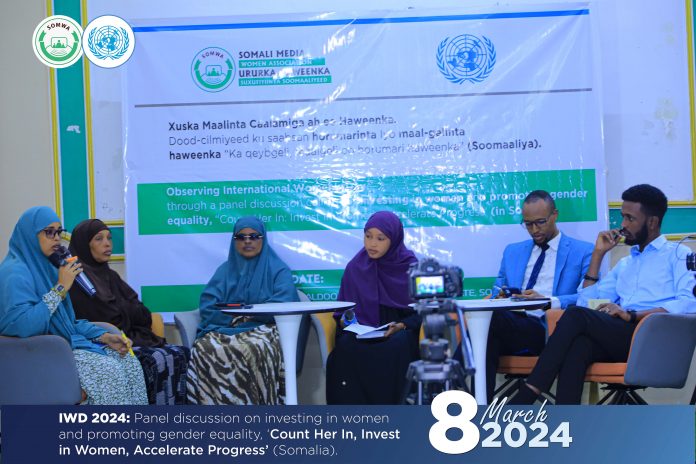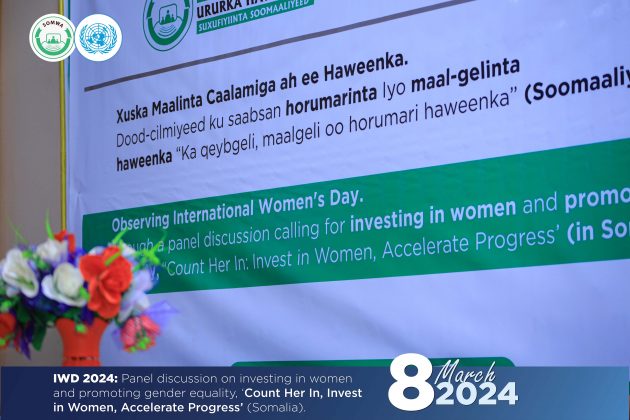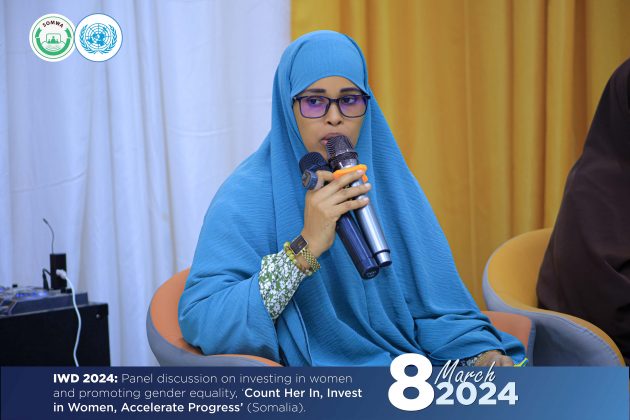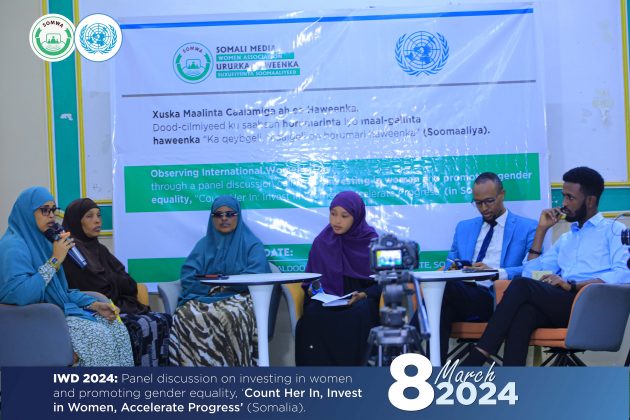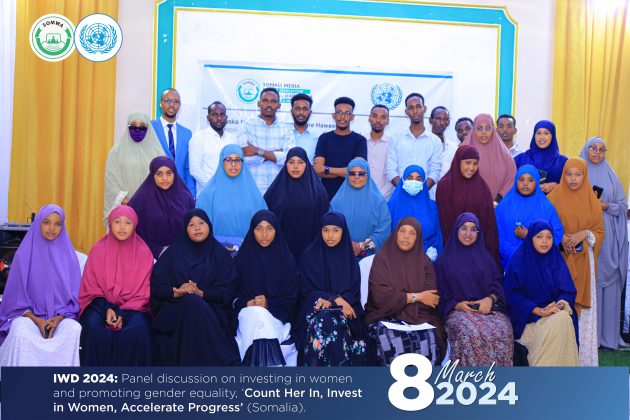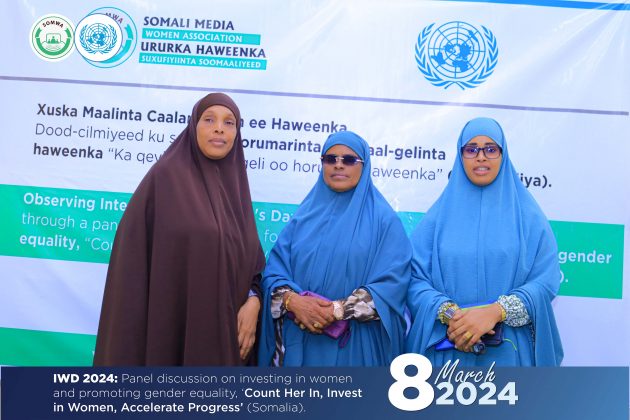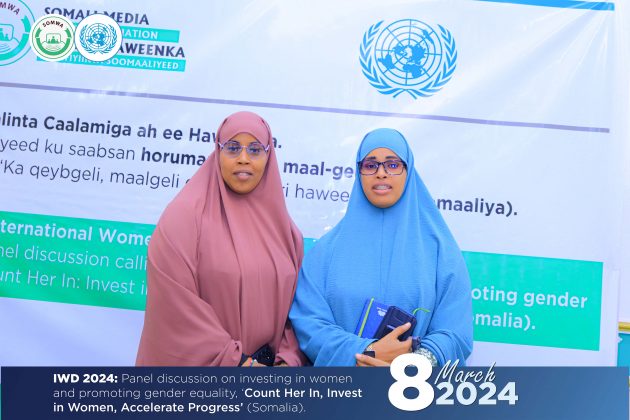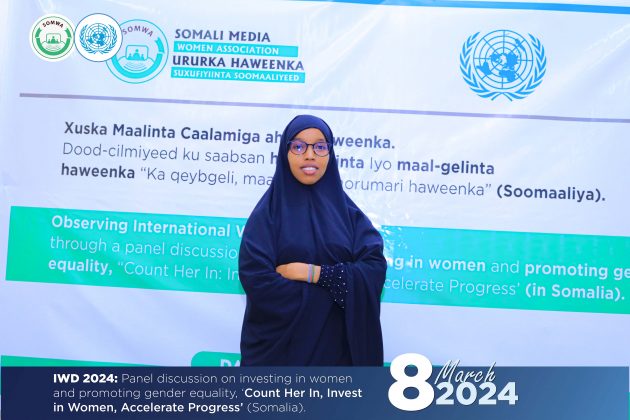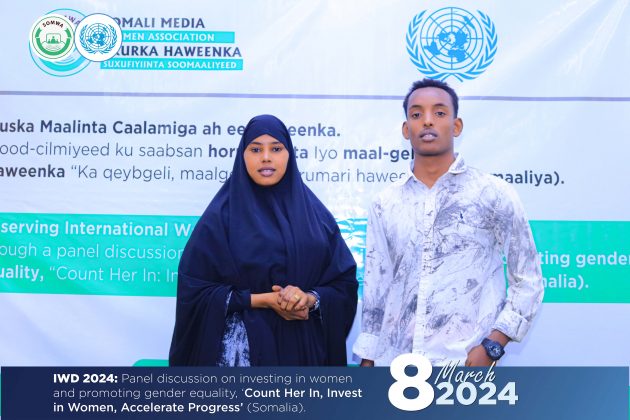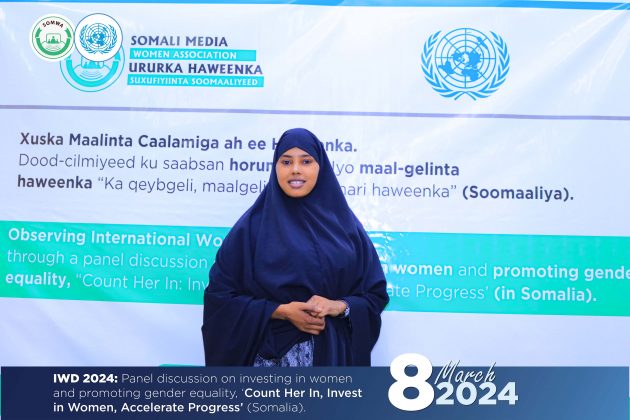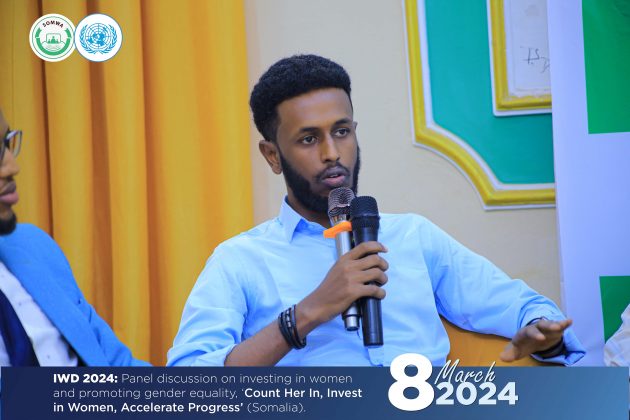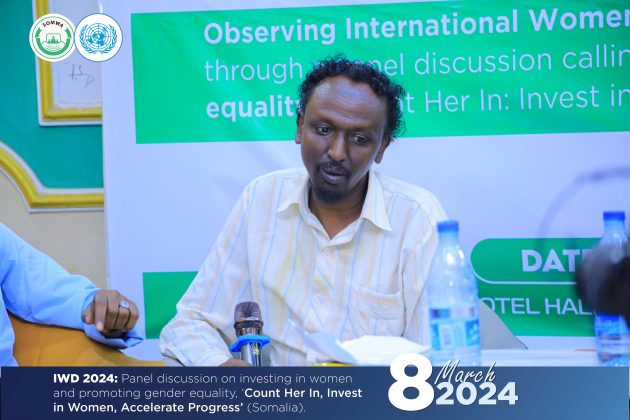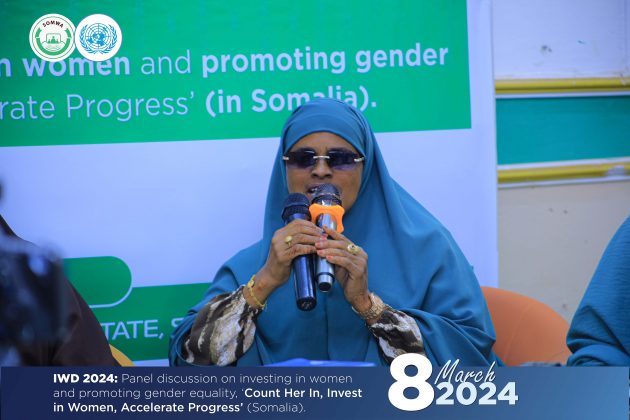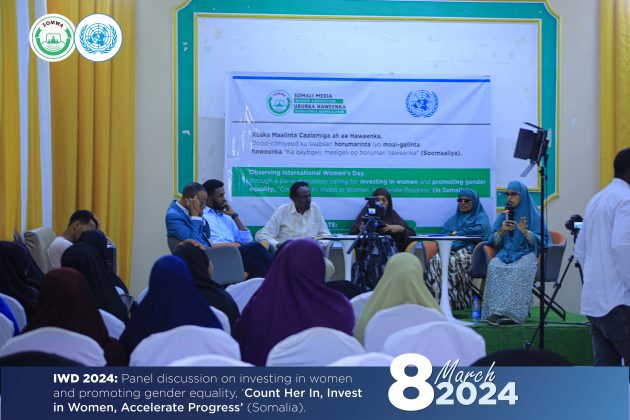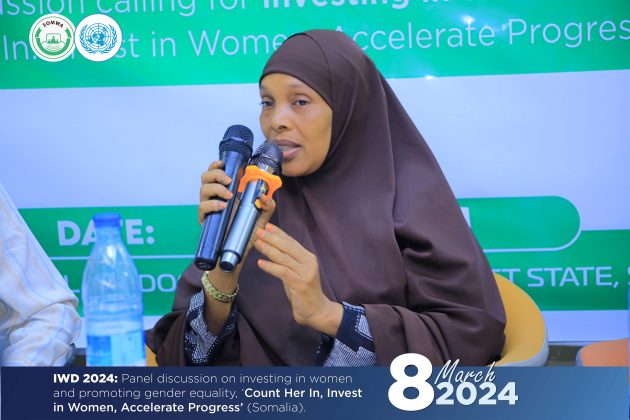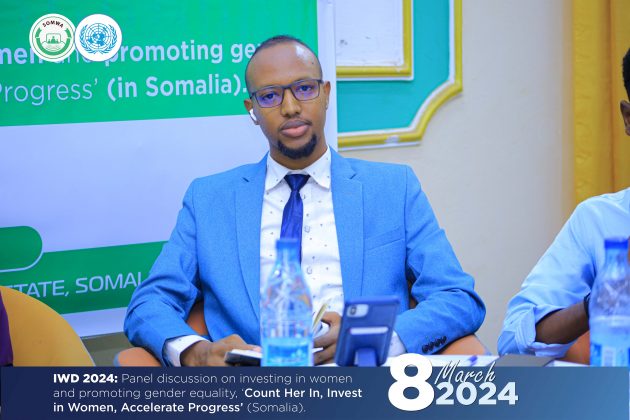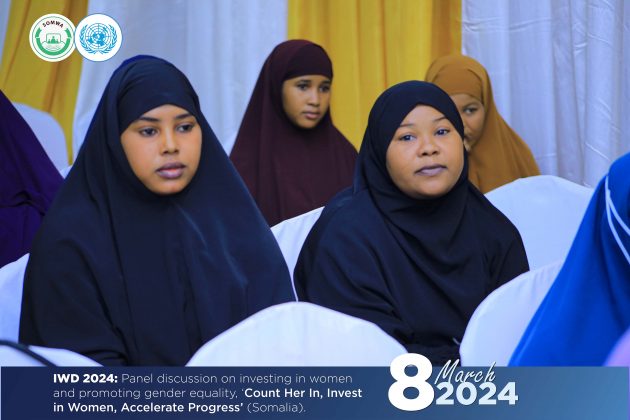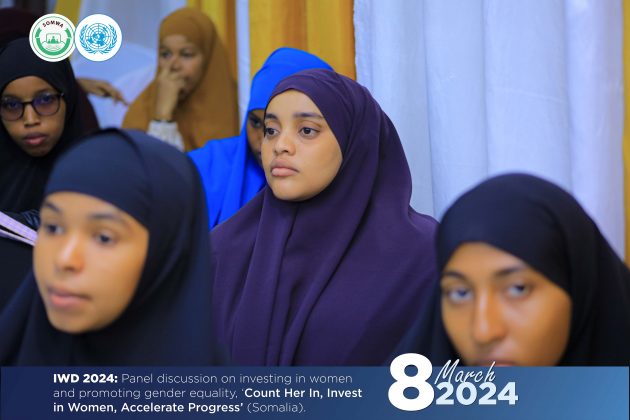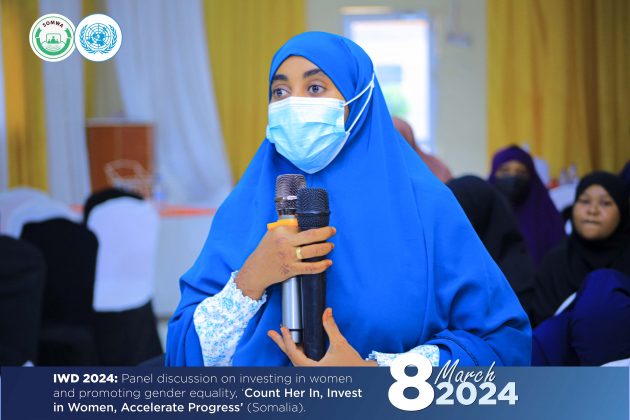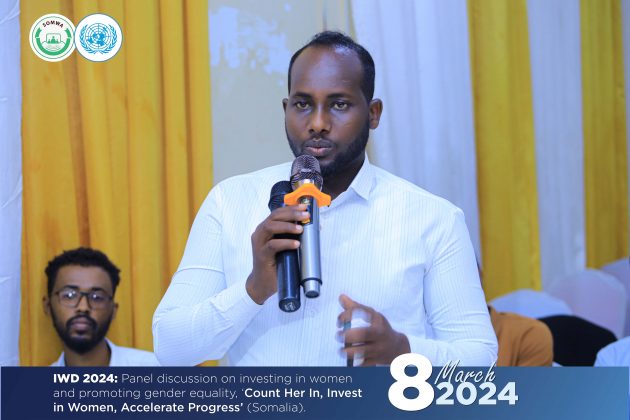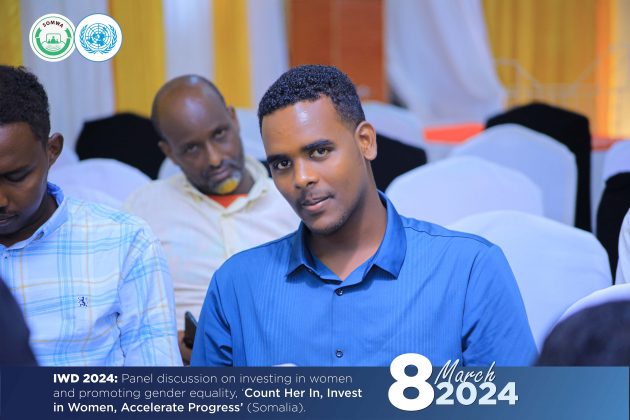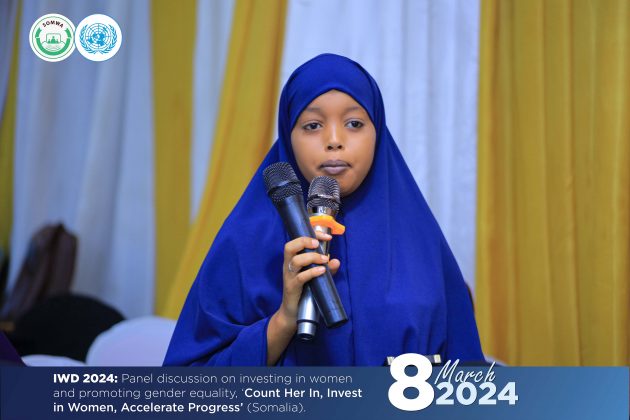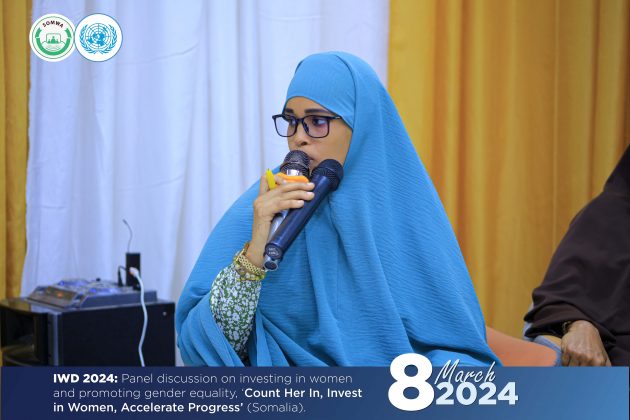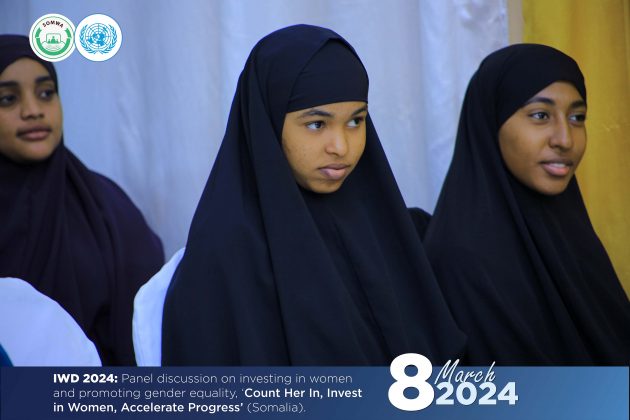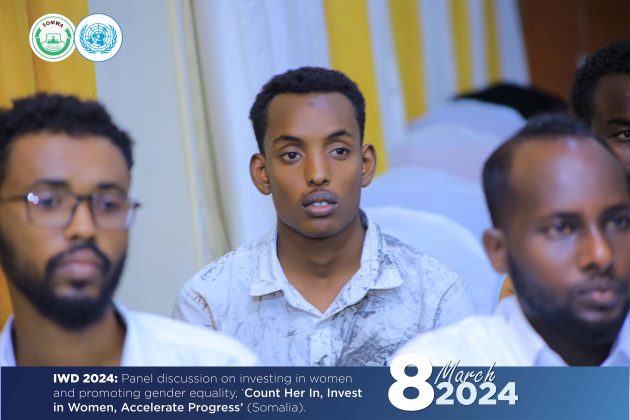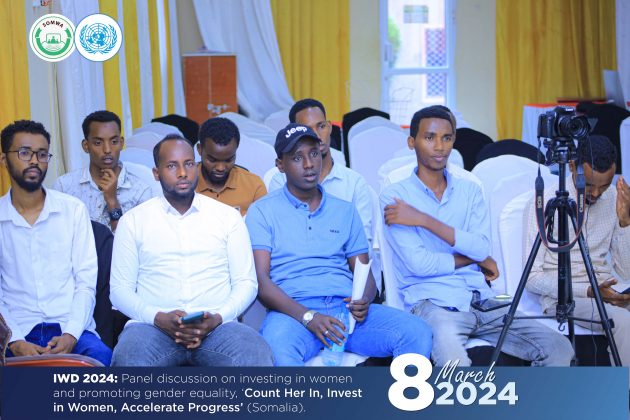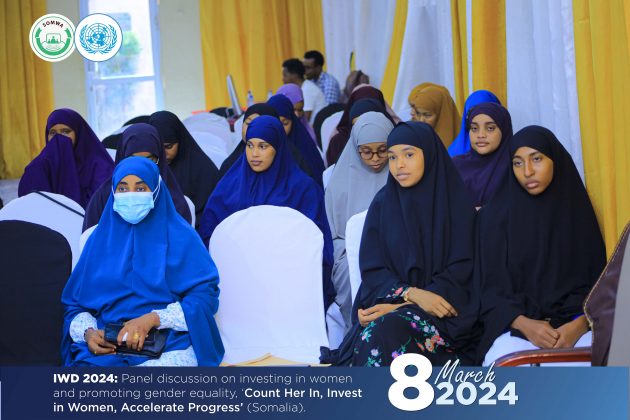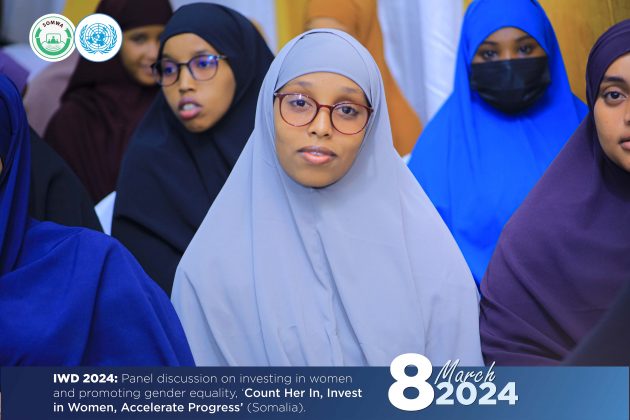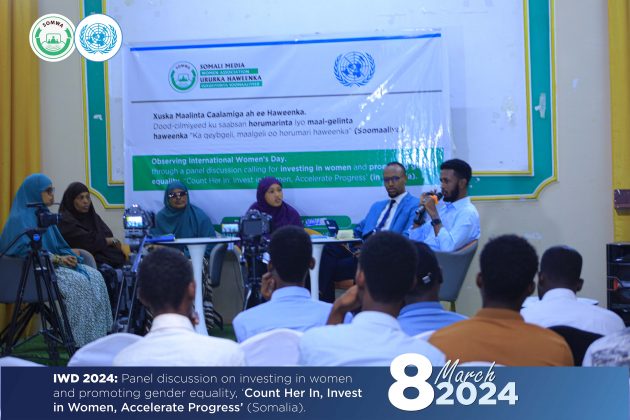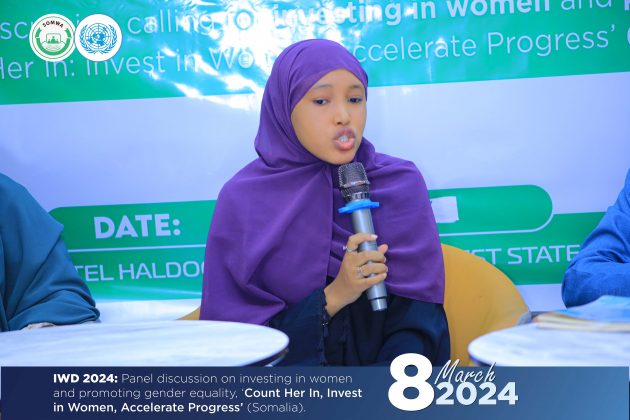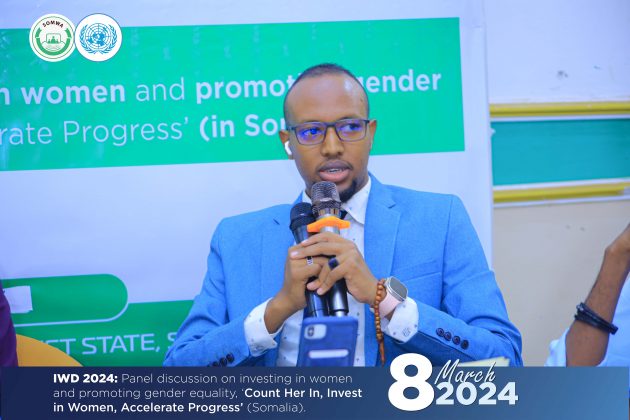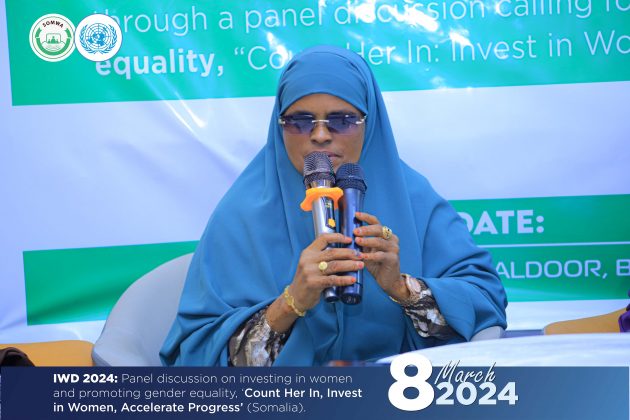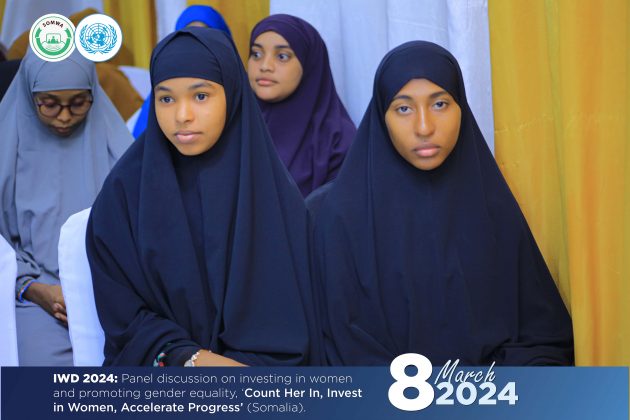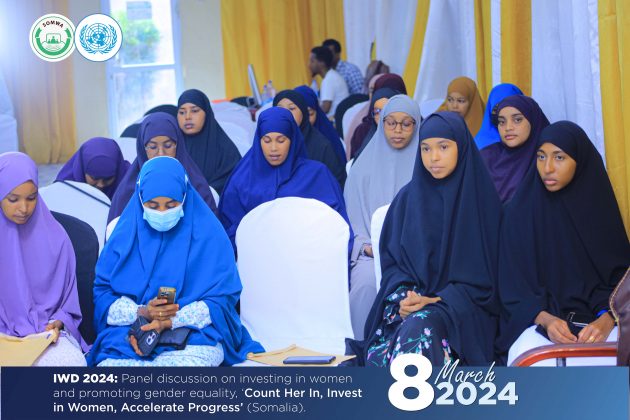International Women’s Day, SOMWA holds an open discussion that calls on investing in women and promoting gender equality in Somalia, ‘Count Her In: Invest in Women, and Accelerate Progress’.
The aim of the open discussion is to increase knowledge and understanding of the linkages between investing in women and girls and preventing violence against them, as well as to enhance recognition and appreciation of the achievements and contributions of women and girls in Somalia, especially in the fields of education, economic empowerment, and leadership.
In general, girls and women in Somalia face considerable cultural challenges and economic barriers that prevent equal participation in society. These obstacles affect their daily lives in terms of access to formal education as well as their long-term prospects for future jobs and career paths. For these reasons, we invited five panellists with different backgrounds and fifty participants to discuss the issues and come up with strategic plans.
Shukri Bidhaan, SOMWA’s chairperson, opened the event and praised and encouraged Somali women to break the barriers to achieving gender equality despite all the odds against them every day. She also highlighted the role of female journalists in shaping the way media in Somalia works and giving voice to women, marginalised groups, minorities, and people living with disabilities.
Opening the event, Baidoa district women’s chairperson, Hindiyow Isak, called on all women and young girls to hail women who are breaking the glass ceiling and to ensure that we work collectively to achieve 30% of the parliament seats.
We had two panel discussions. The first panel of experts, practitioners, and participants discussed what the barriers are to Somali girls and women’s access to education, the workforce, economic participation, and how to bridge the gender divide.
Luuley Iftiin, one of the women organisation leaders in Baidoa, who was among the panellists, blamed the Somali culture, which prioritises boys over girls, for women not going into big business and accessing high education.
Agreeing with Luuley, Mulki of Bay Women argued that early marriage plays a big role in reducing the workforce and economic participation.
Mohamed Abukar, a youth leader, stated that women and girls lost their confidence because, all their lives, they were being told that they could not achieve anything, and this needs to be changed. However, Abdimajid Mohamed, an IT expert, has another idea, and he echoed that women are systematically denied entry into any field. For example, when you look at all the major companies, all the founders and CEOs are male, and the way the work is done, it is clear that it is not designed for women. So, men are blocking women from entering the workforce, especially in the ICT industry.
The second panel of experts and practitioners focused on the best practices and innovative solutions for investing in women and girls as a prevention strategy for ending violence and preparing the workforce for financial independence.
Seynab Ali of Bay Women Development Network said, ‘We have practically seen the importance of women investing, for instance, there are many families in the IDPs who were created as small businesses and are now running their own businesses and are now financially stable’.
Abdimajid, who shared his experience about women and IT with the participants, said, ‘Culturally, the ICT industry is categorised as male-dominated, which is why women do not choose IT as a career path. For example, we used to sit 25 students in an IT class; only one was a woman and the other 24 were men. I would suggest that we create a space and programme exclusive to women’.
Luuley Iftiin suggested affordable and accessible formal and informal education, especially for internally displaced persons (IDP) and very low-income families.
To end gender-based violence, Mulki of Bay women called on laws that protect women and warn local community leaders’s intervention when it comes to solving GBV cases. She sadly highlighted that community leaders almost every time end up re-victimising the victim by proposing the victim get married to her perpetrator.
Finally, some of the women who attended and spoke at the event said that they face challenges and inappropriate behaviour when looking for jobs. They said that they were asked for their body to exchange job offers. SOMWA recorded this serious accusation and is willing to investigate.


